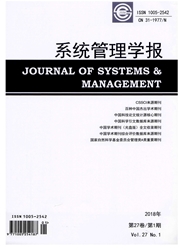

 中文摘要:
中文摘要:
将子群结构纳入March经典的探索式-利用式组织学习模型,利用多主体建模与仿真的方法,研究人际-群际间多种学习机制对组织知识水平的影响。研究结果表明,当组织中的隐性知识比重增大时,人际学习对组织知识水平的增长作用会更明显。提高子群间人际学习的速度仅能增大短期内组织知识水平的增量;扩大个体向其他子群知识搜寻的范围,有助于长期内组织知识水平的提高。群体间直接编码学习对组织知识水平增长的促进作用不明显,且随着各子群知识本地化程度的增大,这种高度的利用式学习反而会阻碍组织知识水平的提高。子群间的外部环境差异性减弱了子群间人员交流学习频率和子群对外来优秀个体的知识编码速度的提高对于组织知识水平增长的促进作用。
 英文摘要:
英文摘要:
We extend March's model by integrating subgroups structure into the classical organizational learning model of exploration-exploitation,and use multi-agent simulation to explore impacts of interpersonal-intergroup learning mechanisms on organization knowledge.The results show that as knowledge tacitness increases,interpersonal learning has a much more significant effect on the eventual knowledge.As interpersonal learning speed among subgroups increases,increments of organizational knowledge level can increase in a short term;Expanding search scope across subgroups helps increase organizational knowledge level over a longer period.Inter-group direct learning of codifiable knowledge can not obviously promote organizational learning,and may deter the increase of organizational knowledge level with the increases of localization of subgroup knowledge.External environment differentiation of subgroups can weaken the positive impacts of high frequency of individual exchanging across subgroups and speed of knowledge codification of visitors from other groups on improvement of organizational knowledge level.
 同期刊论文项目
同期刊论文项目
 同项目期刊论文
同项目期刊论文
 期刊信息
期刊信息
